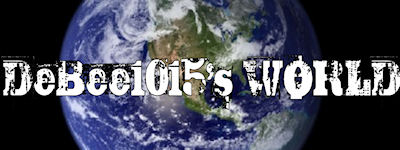Zack O'Malley Greenburg
THE BEAT REPORT
 |
| Jon Bon Jovi: These aren't the songs you've been looking for. |
Over the past three decades, Jon Bon Jovi has played 2,700 concerts in 50 different countries. With his eponymous band, he raked in $125 million over the past 12 months, good enough to land him the No. 8 spot on FORBES’ latest Celeb 100 list. But few people know that he got his start a long time ago in a galaxy far, far away.
The year was 1980, and an 18-year-old John Francis Bongiovi, Jr. was looking to earn a few extra bucks between gigs at New Jersey dive bars and his job as an errand boy at his cousin Tony Bongiovi’s radio station in New York. A producer by the name of Meco Menardo asked Tony if he knew of any good singers looking some work. And with that, Menardo was quickly introduced to the man who’d become Bon Jovi.
“This guy Meco would hire session guys and they’d orchestrate stuff with disco beats,” Bon Jovi recalls over a tuna sandwich in Manhattan. “He did Star Wars rip-off stuff in the wake of all of George Lucas’ success. And he needed a kid.”
Specifically, Menardo was looking for someone with a high voice to sing lead vocals in the song “R2D2 We Wish You A Merry Christmas,” a spectacularly corny track praising the world’s most famous droid (see below). The song was one of nine he was producing for an album called Christmas In The Stars: Star Wars Christmas Album. Other choice cuts included “What Can You Get A Wookiee For Christmas (When He Already Owns A Comb),” which reportedly charted at No. 69 on Billboard’s Hot 100 in 1980.
When it came time to record the R2D2 song, Meco tried to sing the part himself. But his mature voice didn’t exactly fit in with a chorus of children singing “R2D2 we love you, it’s true” amid the constant clatter of jingle bells. That’s when he connected with the future “Livin’ On A Prayer” singer.
“Meco tried to sing it himself, and he didn’t sound like a young boy,” says Bon Jovi. “So he said, ‘Can you really sing?’ I said, ‘Yeah,’ and he said, ‘Do it.’ So they wrote me down like a session musician … It took 20 minutes, there was nothing to it.”
Menardo paid Bon Jovi $180 for his efforts, and the two parted ways. Subsequently, Menardo has said he predicted stardom for the youngster immediately; indeed, Bon Jovi’s big break came in 1983, when he wrote and recorded the song “Runaway.” After sending the tape to every record company he could think of, to no avail, he took his cassette to Long Island radio station WAPP, which was so new it didn’t have a receptionist. He banged on the window of the sound booth and convinced the DJ to play the song, which quickly exploded onto the mainstream radio scene.
“‘Runaway’ was that fluke great story of a kid that knocked on a window with a cassette tape and then broke nationally,” he says. “That same cassette that was sitting on every record guy’s desk was suddenly getting me phone calls.”
One of those phone calls came from Mercury Records, which signed Bon Jovi to his first record deal that same year, prompting the singer to shorten his name from John Francis Bongiovi, Jr. It wasn’t until the 1986 release of Slippery When Wet that Bon Jovi became a household name, thanks to hits like “Livin on a Prayer” and “Wanted Dead or Alive.” The album has sold 28 million copies worldwide.
Christmas In The Stars, however, did not enjoy quite so much success. After making its CD debut in 1994 (the original was released only on cassette), it was clear that Menardo’s masterpiece wasn’t going to be joining Bing Crosby in any holiday radio marathons.
“Few Christmas albums are as truly terrible as Star Wars: Christmas in the Stars,” wrote Allmusic.com. “Fans of the series should give it a listen just to hear how bad it is, but this is really only recommended for those who enjoy terrible music for its comic value.”
Still, Bon Jovi has no regrets.
“It was cute, it was funny,” he says. “I got my $180, and that was the end of it.”

No comments:
Post a Comment